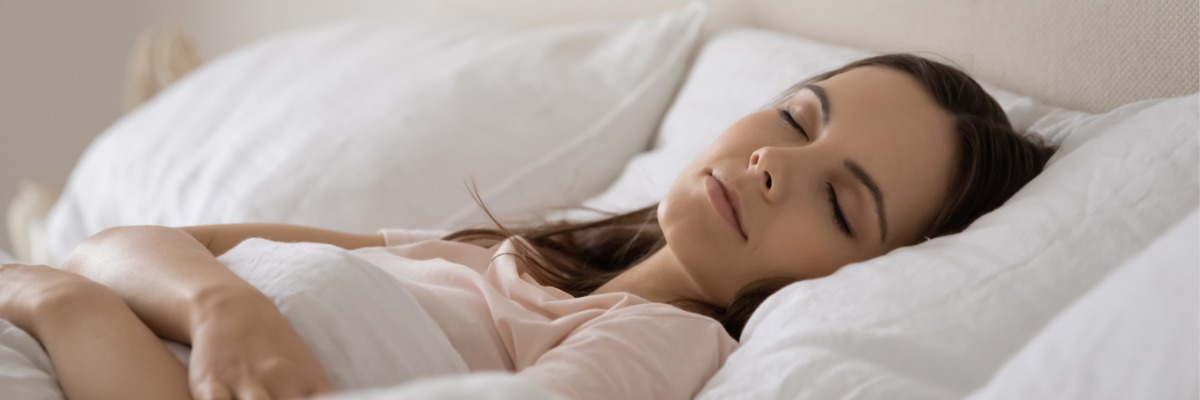Top Tips for Fighting Night Sweats

Do you often find yourself drenched in sweat in the middle of the night? Night sweats or sleep hyperhidrosis may be extremely inconvenient and uncomfortable, making it difficult to get a good night’s sleep. If you are one of the many people who sweat at night, you may be wondering what’s causing it and what you can do about it.
What Causes Night Sweats?
One of the most common causes of night sweats is menopause. Sweating at night is often one of the first signs of menopause and may persist for years after a woman’s last menstrual period. However, there are several other underlying conditions that may cause night sweats, including:
- Hypoglycemia (low blood sugar)
- Infections such as HIV, tuberculosis, and endocarditis
- Leukemia
- Lymphoma
- Hyperthyroidism
- Obesity
- Anxiety and stress
- Gastroesophageal reflux disease
- Sleep apnea
It is important to note that excessive perspiration while sleeping is not always due to an underlying medical condition. Sometimes, hot weather, spicy foods, sleepwear, and heavy blankets may cause you to sweat more at night. If you repeatedly experience night sweats, speak to your doctor to rule out any potential underlying causes.
6 Tips to Help You Fight Night Sweats
Lessening the frequency and severity of your night sweats may be as simple as making some lifestyle changes. Here are a few tips to keep in mind the next time you are sweating throughout the night:
1. Sleep in a Cool Room
Keeping your sleeping environment at an optimal temperature may reduce the occurrence of night sweats. A cool room (between 65-68 degrees Fahrenheit) is ideal for sleep. If you feel yourself starting to become overheated, try adjusting the thermostat, using a fan, or opening the windows if it is cool outside. Maintaining a cool temperature in your bedroom may also improve the quality of your sleep overall.
2. Change Your Sheets and Bedding
Thick comforters, quilts, and heavy blankets may contribute to your excess sweating at night by trapping heat in your bed. Avoid using fleece, wool, and other heavy materials on your bed to prevent becoming too hot during the night. Instead, opt for more breathable sheets and light blankets. Silk sheets are a great option as they are both cooling and comfortable. In addition, wearing light and loose-fitting sleepwear is a good way to avoid trapping heat while you sleep.
3. Avoid Night Sweat Triggers
Caffeine, alcohol, and spicy foods are all things that may cause a spike in your body temperature and induce night sweats. If you are prone to sweating in your sleep, try to avoid these triggers in the hours leading up to bedtime. Consuming a large meal before bed may also increase your body temperature and cause you to sweat during the night. Eating a light evening dinner or snack may help you avoid sweating while you sleep.
4. Be Mindful of Your Exercise Schedule
Exercising too close to bedtime may cause an increase in your body temperature and lead to night sweats. Consider finishing your workout at least a few hours before you go to sleep to allow your body time to cool down. On the other hand, if you are not active enough during the day, you may also experience night sweats. Regularly exercising helps regulate your body temperature, so finding the right balance is key.
5. Maintain a Healthy Weight
Being overweight or obese may contribute to excess sweating at night. Carrying around extra weight strains your body and may cause you to sweat more. Making changes in your diet and regular exercise can assist you in reaching and maintaining a healthy weight. Fatty foods and foods with a high acid content should be avoided as they may trigger night sweats. Incorporating more fruits, vegetables, and whole grains into your diet may reduce the severity of night sweats.
6. Cool Yourself Down
If you feel yourself starting to sweat during the night, there are a few things you can do to cool down and stop the sweating. For example, try taking a cool shower or applying a cold compress to your forehead, neck, and chest. You can also try soaking your feet in cold water for a few minutes. Furthermore, drinking a glass of ice water before bed may help lower your body temperature. Adding these simple cooling techniques into your nightly routine may reduce the severity of your night sweats and allow you to get back to sleep quickly.
Treat Night Sweats with Healthy Aging Programs
Conditions such as a hormone imbalance or menopause are among the leading causes of night sweats. If you are struggling with night sweats due to a hormone imbalance, Outset can help you find a provider in your area that offers our hormone-optimizing healthy aging programs.
If you are a healthcare provider looking to offer hormone therapy in your practice, Outset can help you get started. Partnering with Outset may allow you to maximize patient outcomes and provide them with the best possible care. Whether you are a patient or a provider, contact Outset today and start on the path to better health.
